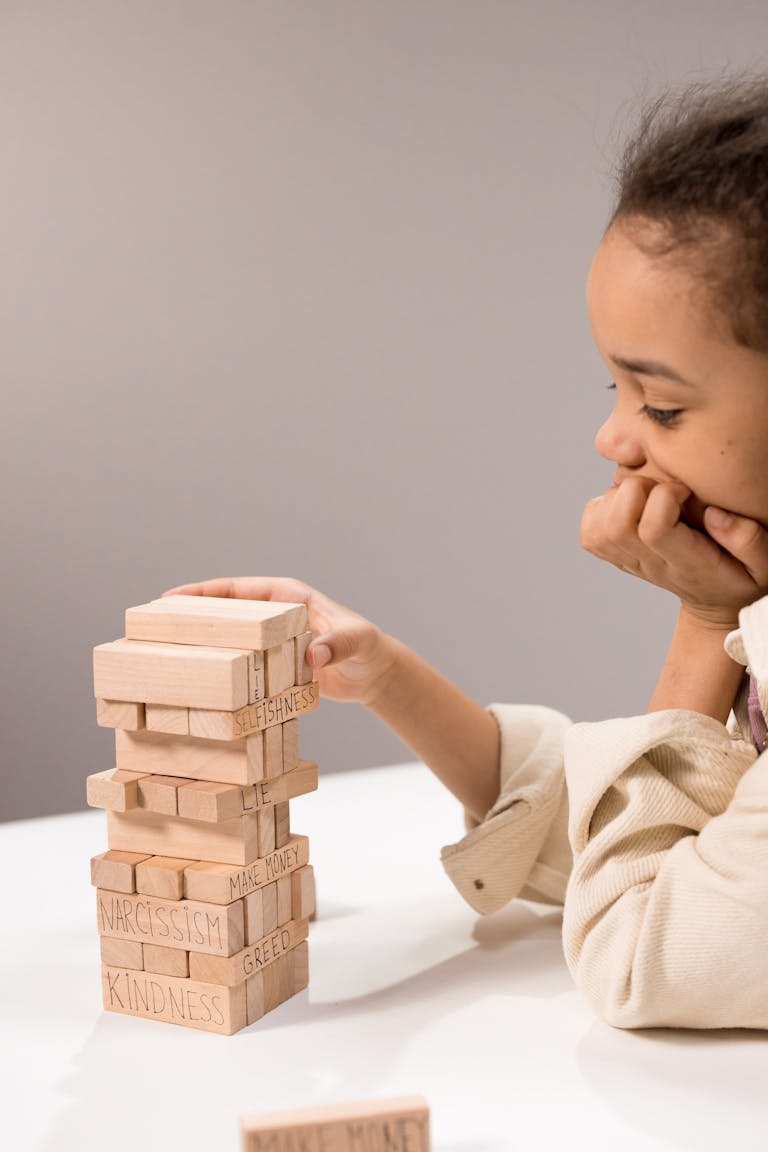Effective Strategies for Parents: What to Do When Kids Won’t Listen
Introduction
Effective communication between parents and children is essential for fostering healthy relationships and promoting positive mental health. But when their kids seem unresponsive, disobedient, or unwilling to listen, many parents have difficulties. Parents may encourage emotional well-being and strengthen their bonds with their kids by understanding why this occurs and implementing proven strategies into practice.
This article examines strategies that are supported by current research to improve parent-child communication. Parents may develop a more peaceful and cooperative family environment by implementing these strategies.

Understanding Why Kids Don’t Listen
Children not listening to their parents is a common concern, but it’s essential to recognize that this behaviour is rarely about defiance alone. Several factors influence a child’s ability and willingness to listen, including:
- Developmental Stage: Young children, especially toddlers and preschoolers, are still developing impulse control and attention spans, making it harder for them to process instructions immediately (Gagne et al., 2020).
- Emotional Regulation: When children are overwhelmed, frustrated, or anxious, they may struggle to focus on what their parents are saying (Morris et al., 2017).
- Parent-Child Relationship: A history of negative interactions or inconsistent discipline may cause children to tune out their parents (Baumrind, 2015).
- External Distractions: Screens, social environments, or even a busy household can make it harder for children to concentrate and listen attentively (Duch et al., 2019).
By understanding these underlying causes, parents can shift their approach to one that fosters attentiveness and cooperation.
9 Proven Strategies to Improve Listening and Cooperation
1. Set Clear Expectations and Consistent Boundaries
Children thrive in structured environments where expectations are clear. Research suggests that consistency in parenting, including clear rules and follow-through, enhances children’s cooperation (Eisenberg et al., 2015). For example, instead of saying, “Behave yourself,” a clearer directive like, “Please keep your voice down when we’re in the library,” helps children understand expectations.
2. Use Positive Reinforcement
Rather than focusing on negative behaviours, reinforcing good behaviour encourages children to listen more effectively. Studies show that praising desirable behaviour increases the likelihood of it being repeated (Kazdin, 2017). A simple statement like, “I really appreciate how you put your toys away without being asked,” strengthens positive behaviour.
3. Practice Active Listening
Active listening fosters mutual respect and improves communication. When children feel heard, they are more likely to reciprocate. Research by Gordon (2018) highlights the importance of techniques such as:
- Making eye contact
- Paraphrasing what your child says
- Using an open body posture
For example, if a child is upset about a rule, acknowledging their emotions (“I understand you’re frustrated about bedtime, but sleep is important for your health”) validates their feelings while reinforcing the rule.
4. Model the Behaviour You Want to See
Children learn by observing their parents. If parents demonstrate respectful listening, children are more likely to mimic those behaviours. According to Bandura’s (2016) social learning theory, children adopt behaviours they see modeled in their environment. Speaking calmly, maintaining patience, and showing attentiveness set a powerful example.
5. Give Choices to Foster Autonomy
Providing children with age-appropriate choices encourages cooperation. Research suggests that children are more likely to follow instructions when they feel a sense of control (Deci & Ryan, 2017). Instead of saying, “Put on your jacket,” try, “Would you like to wear your blue jacket or your red one today?” This simple shift makes children feel empowered while still achieving the desired outcome.
6. Use Short and Simple Instructions
Young children, in particular, may struggle with long or complex directives. Breaking instructions into smaller steps can significantly improve compliance. Studies indicate that children process information better when commands are clear, concise, and delivered one at a time (Gathercole et al., 2019). Instead of saying, “Clean your room,” say, “Please put your books on the shelf first.”
7. Implement Natural Consequences
Consequences should be logical and related to the behaviour. When used correctly, they help children understand the impact of their choices without feeling unfairly punished. Research by Grusec (2021) supports the idea that natural consequences—such as losing a toy that was thrown—teach responsibility more effectively than arbitrary punishments.
8. Choose the Right Moment to Speak
Timing matters when giving instructions or having discussions. A child who is deeply engaged in a game or frustrated after a difficult day at school may struggle to listen. Approaching them when they are calm increases the chances of effective communication. Research suggests that stress hormones interfere with cognitive functioning, making timing a crucial factor in cooperation (McEwen, 2019).
9. Maintain a Connection Before Giving Directions
Children are more likely to listen when they feel emotionally connected to their parents. A simple touch on the shoulder, a warm tone, or a brief moment of eye contact before speaking can make a significant difference. According to Siegel and Bryson (2020), emotional connection enhances children’s receptivity to parental guidance.
Understanding the Importance of Effective Communication
Effective communication is foundational to a strong parent-child relationship. When children feel understood and respected, they develop:
- Higher self-esteem: Feeling heard boosts confidence and emotional security (Brummelman et al., 2017).
- Better emotional regulation: Open dialogue helps children express their emotions in healthy ways (Morris et al., 2017).
- Increased cooperation: Mutual respect fosters more willing participation in family routines (Kazdin, 2017).
By focusing on connection rather than control, parents can foster long-term positive interactions that benefit both their children’s behaviour and their mental health.
Conclusion
Although being a parent is a difficult road, children’s lack of listening is not always an indication of disobedience. Parents can implement techniques that improve collaboration and strengthen family ties by having a better understanding of the developmental, emotional, and environmental elements that affect listening.
Parents can greatly enhance their communication with their children by modeling polite behaviour, employing positive reinforcement, practicing active listening, and setting clear expectations. These research-backed techniques support children’s emotional stability and mental health in addition to encouraging listening.
It takes effort to develop a respectful, trusting relationship with your children, but the rewards are long-lasting. By putting these strategies into practice, parents may create a more cooperative and peaceful household where kids and parents feel appreciated, respected, and heard.
References
Bandura, A. (2016). Social Learning Theory. Prentice-Hall.
Baumrind, D. (2015). Effects of authoritative parental control on child behavior. Child Development, 37(4), 887-907.
Brummelman, E., Thomaes, S., & Sedikides, C. (2017). Separating narcissism from self-esteem. Current Directions in Psychological Science, 26(1), 36-40.
Deci, E. L., & Ryan, R. M. (2017). Self-Determination Theory: Basic Psychological Needs in Motivation, Development, and Wellness. Guilford Press.
Eisenberg, N., Spinrad, T. L., & Eggum, N. D. (2015). Emotion-related self-regulation and its relation to children’s maladjustment. Annual Review of Clinical Psychology, 6, 495-525.
Kazdin, A. E. (2017). The Kazdin Method for Parenting the Defiant Child. Houghton Mifflin Harcourt.
McEwen, B. S. (2019). The impact of stress on cognition and behavior: Implications for mental health. Annual Review of Neuroscience, 42, 87-99.
Siegel, D. J., & Bryson, T. P. (2020). The Whole-Brain Child: 12 Revolutionary Strategies to Nurture Your Child’s Developing Mind. Delacorte Press.







